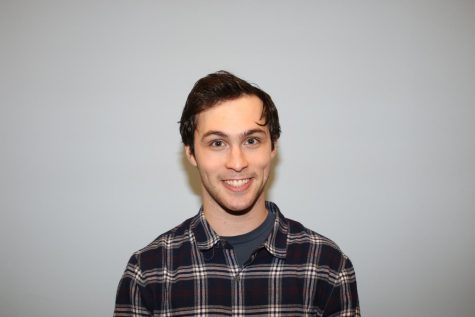Women’s March On Washington draws nationwide, local support
January 20, 2017
Today Donald J. Trump will be sworn into office as the 45th president of the United States. Upon inauguration, the new president will have the lowest favorability rating in the past four decades. This is possibly due to to the fact that his platform on the issues of women’s health and rights was less-than-progressive. The President-elect has promised the end of federal funding for Planned Parenthood, a national health organization that offers family planning services, and has pledged to nominate a justice to the Supreme Court of the United States who would “immediately” overturn Roe v. Wade, the landmark abortion ruling from 1973.
On election night last year, in response to Trump’s views and his impending victory, a retired attorney named Teresa Shook created a Facebook event suggesting that women gather in Washington D.C. to protest Trump’s inauguration. As many outlets have since reported, she woke up the next morning with 10,000 women attending her march from all across the country. Since then, Women in the World, along with other known activists, have picked up what is expected to be the largest protest in Washington since the Million Man March for civil rights that saw Martin Luther King Jr.’s legendary “I Have a Dream” speech. At the time of publication, there were currently more than 209,000 planning on attending, with another 255,000 still undecided according to the event’s Facebook page.
Included in those numbers is first-year Case Western Reserve University student Kyle Smith. Despite the six-hour drive and lack of shelter, Smith is planning on attending the march, because, as he put it, “Why even have a car on campus if you’re not going to drive 14 hours to protest the president-elect.”
Due to a variety of factors, including the travel time and the inconvenient overlap with the first weekend of the spring semester, many CWRU students who would be marching if given the opportunity will be left on the sidelines. Some, however, have siblings or friends in the D.C. area who plan on marching. Madison Kelts, sister of first-year student Samantha Kelts, described her motivations for attending the march in detail.
“I’m just pissed and want to shout in the streets. I’m marching in order to express and inspire myself. I think being a part of a march of this scale will be the ultimate catharsis for the bewilderment, sadness and fear I’ve felt post-election, and also a spur to ensure that I keep doing everything I can to advance the causes I believe in throughout the Trump presidency.”
This advocacy sentiment was echoed by first-year student Halle Rose, who described the potential for multiple Trump-administration Supreme Court nominees as her primary inspiration for protest. Rose is also unable to attend the march in Washington, but would like to. ”Attending the march would give me the opportunity to directly participate with something that is directly relevant to my life and significant as far a moderate social justice movements go,” she said. In terms of the Trump presidency overall, Rose said she was hopeful for his success, but “not able to say [that she is] optimistic.”


